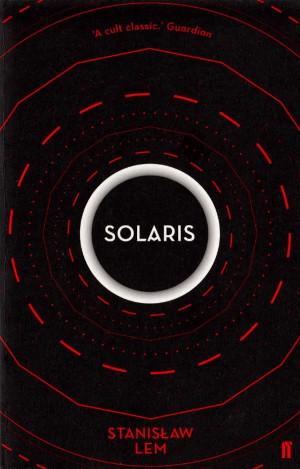
Solaris
by Stanisław Lem
Score: 4/5
Solaris is generally considered one of the greatest science-fiction novels ever written. Stanisław Lem (1921-2006), a Polish writer, published the novel in 1961 while the country was under Soviet control.
The story concerns the arrival of a scientist to a research station that sits above a vast ocean covering the whole of the planet Solaris. It is quickly apparent that all is not well: an unexplained death as well as erratic and unusual behaviour from the remaining two scientists. Extremely odd things are happening.
The "ocean" of Solaris is very different to anything on Earth: a chemical soup, organic, inorganic, colloidal. It displays unusual behaviour (to say the least), including forming huge structures within itself; these sometimes stretch many miles and are of huge complexity. It seems to exhibit intelligence. Is it sentient? This vast alien environment is the center of a large research effort and body of "Solarist" literature.
When you're in the mood to read a book, you are much more likely to enjoy it; something I have become much more aware of in the past few years. Being short also helps. Solaris is well written and the translation seems good (in my Faber&Faber edition the translators are Joanna Kilmartin and Steve Cox) but there are some sections that are more difficult. These are lengthy extracts from "Solarist" scientific research literature and are often dry and can be dull. Although my eyes glazed over occasionally, these writings did expand on the strangeness of the planet. It is still an environment I found very difficult to visualise however. This is a "first contact" story but of a "sideways" kind: the fact that the contact is with something we just cannot understand at all is the core of the book. It is eerie, even creepy, and our many questions are never really answered. Much like the scientists, we have a lot of theories about the planet, but no real idea of what is going on.
The novel is a short, sharp exploration of what a true "alien" contact might be and also a look at how humanity sees itself as it ventures out exploring the cosmos. The novel's been filmed twice now. I've seen neither film but will try to watch them sometime.



